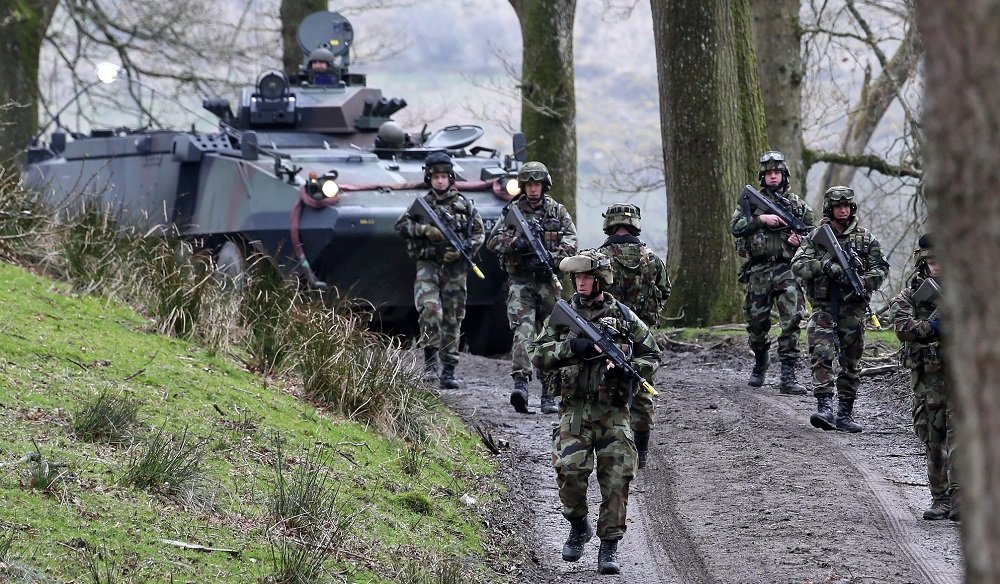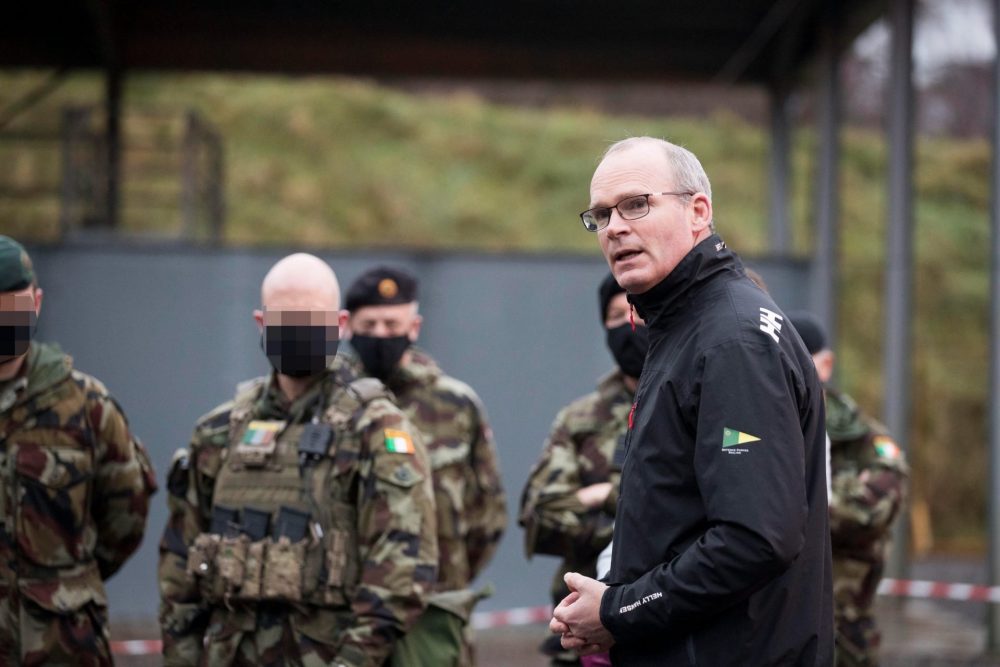Good communication is essential in maintaining strong working relationships at all levels of an organisation. Poor communications inevitably lead to poor motivation, which in turn leads to a crisis of confidence. In no other Irish organisation is this situation exemplified more than in the widening rift between the Defence Forces and Department of Defence (DOD).
Both organisations have had bad blood brewing for many years, primarily over the state of Defence Forces pay, recruitment, and equipment. The relationship has deteriorated into open hostilities: shouting matches between the Chief of Staff and the Department’s former Secretary General are well known.
Most recently, the two have been at loggerheads over the Covid pandemic. At a time when cooperation is needed most to utilise the state’s logistical resources, the DOD has so far failed to deploy the Defence Forces effectively. The army has been called to assist at just nine understaffed nursing homes since the start of the pandemic, while legal restrictions prevent army reserves from being fully deployed in the vaccine rollout.
There are other examples. In 2019, two of the Naval Service’s nine ships were withdrawn from duty because there were not enough sailors to crew them. An officer told sailors that the Naval Service had to “cut its cloth to measure” until it could address the manpower shortage, a comment that angered the DOD.
Shortly afterwards, and following continuous arguments with opposition politicians on this issue, then-Minister for Defence Paul Kehoe interjected, claiming the ships were actually tied up for maintenance; close to two years later, both ships remain tethered, with a further two undergoing repairs.
Likewise, in 2020, neither the Defence Forces nor the DOD could come to terms when the former sought to extract two officers from a UN mission in the Democratic Republic of Congo due to the worsening security situation there. After a month of planning, the DOD had still not provided clarity to the Defence Forces on plans to bring them home.
Shots fired
Many soldiers believe that the DOD is micro-managing the military while refusing to give it the resources to do its job. Former member of the Army Ranger Wing and now independent TD, Cathal Berry (who entered politics to highlight the dismal treatment of soldiers), described the DOD as “completely clueless”, devoid of people with real-life experience in the military or international relations.
Indeed, while the number of soldiers in the Defence Forces has dwindled, the number of civil servants in the DOD has grown. According to the latest Defence Forces Review, the Department of Defence in Finland has 130 members of staff, 20 of whom have a military background; the Finnish Defence Forces have 33,000 full-time members. This is an employment ratio of one civil servant for every 254 full-time soldiers.

Sweden has roughly 140 civil servants in its Department of Defence and 22,700 full-time military personnel, a ratio of one civil servant for every 162 soldiers. Ireland, which has 354 civil servants in the DOD compared to its 8,434 soldiers, has in contrast a ratio of one civil servant for every 23 soldiers.
At the start of the pandemic, the Government launched a campaign to attract former enlisted personnel to re-join the military, which supported another campaign, launched in 2019, to attract former officers. Of the 800 applications received, the DOD has authorised fewer than 70 individuals to re-join, claiming that the other 730 do not have the required ranks or abilities.
The DOD-skewed nature of the command structure means that if the minister of the day does not like the answer they get from their chief of staff, they can bypass him and directly instruct more junior commanders.
The DOD’s relationship with the Defence Forces is further undermined by the fact that it has actually given significant sums of money back to the Exchequer every year— €130 million since 2013—having failed to spend it, despite serious funding concerns echoed by army personnel and politicians alike.
Ambitious and radical
Minister Coveney has acknowledged that the Defence Forces face “serious problems” and that they will be tackled head on by Government. Fresh faces at the helm of the DOD, including new Secretary-General Jacque McCrum, provide reasons for optimism.
The newly established Commission on Defence, led by former Secretary-General at the Department of Justice Aidan O’Driscoll, is a team of 15 top academics, senior military personnel, human resources experts, and civil servants. Its creation was a key commitment in the Programme for Government, and it offers hope that divisions will be addressed and healed.
The Defence Forces simply cannot afford yet another review where recommendations are not acted on: the departure of many highly skilled personnel must be addressed once and for all.

A separate review of the structure and role of the DOD is also under way, with both reports due to be sent to the Government in December. After the Commission is finished, the Government will set up a separate pay body for the Defence Forces that will separate their pay from collective public sector pay talks.
Minister Coveney went as far as to say: “I’ve given [the Commission] an instruction to be ambitious and be radical if necessary, and I have let my colleagues in Government know that when the recommendations from the Commission come back, the Government needs to prioritise that quickly.”
An inherent flaw
This Commission presents an opportunity for action, but it will require absolute buy-in from politicians, army command, and civil servants, otherwise it will be futile.
However, a major obstacle remains. The Commission’s terms of reference outline an examination of structures and retention issues internally, but they do not address the most fundamental issue, the core of all the problems: the relationship between the Defence Forces and DOD and the imbalance between military personnel and civil servants.
The Commission on Policing is not a distant memory; it examined the relationship between the Department of Justice and An Garda Síochána to good effect. The Government has missed an important step in this regard: recommendations that lead to improved relations are crucial to progress.
Minister Coveney has proven he has a real interest in addressing issues within the Defence Forces and his own department. He has shown a willingness to engage directly with representative bodies, to listen and develop solutions. The appointment of Secretary-General McCrum, too, has been heralded as a “breath of fresh air”.
So long as there are capable people at the helm, and the root issues are addressed now, there is real opportunity for much-needed change.

About the author
Karl specialises in public and corporate affairs for clients operating in highly regulated environments. Prior to 360, Karl worked in public affairs and public relations with other communication consultancies. He has also worked for high-profile politicians in both the European Parliament and the Houses of the Oireachtas.
Cover photo credit: Philip Jones
